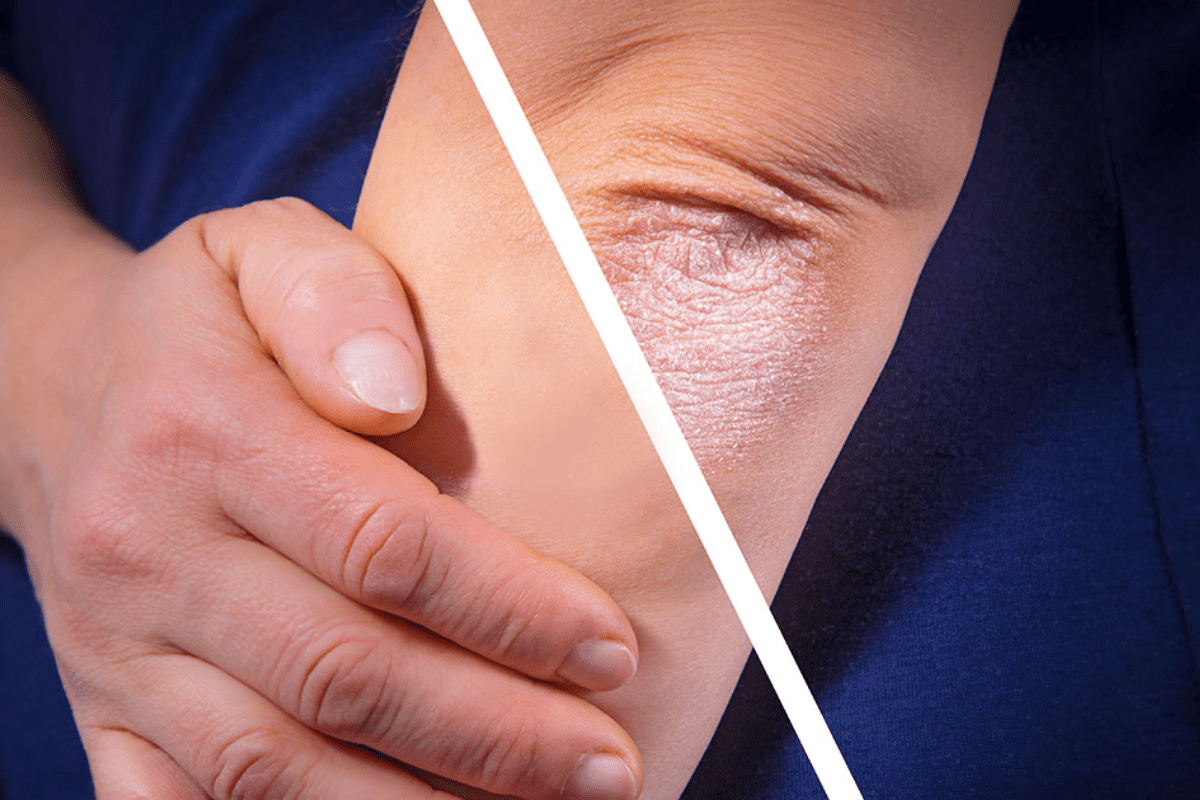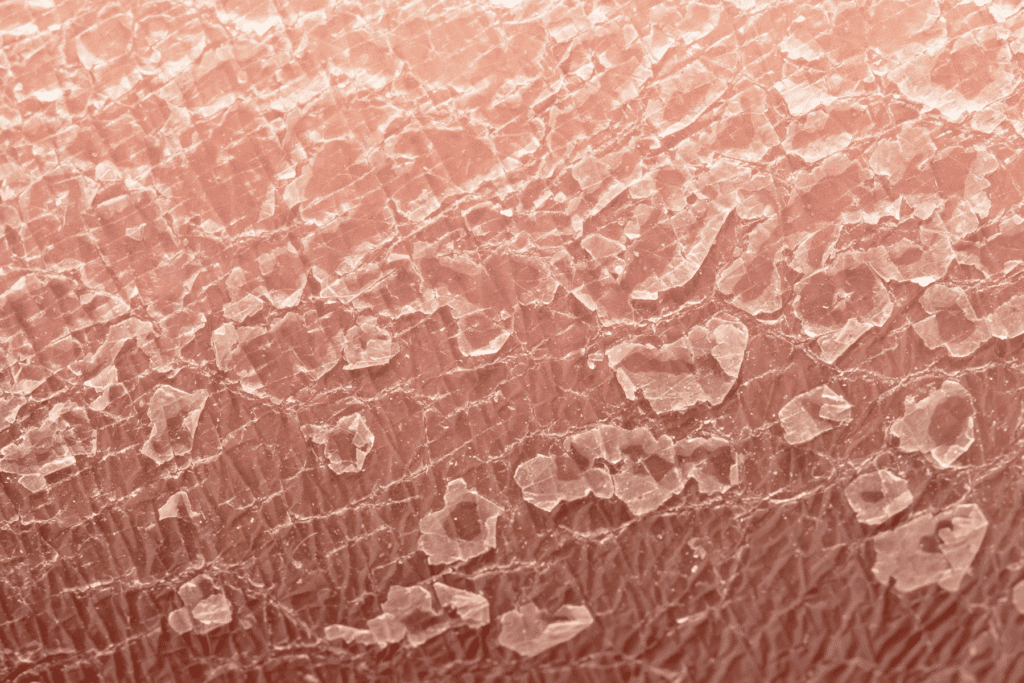
The Relationship Between Skin Barrier Dysfunction and Psoriasis

Psoriasis is a chronic, immune-mediated disease that manifests as patches of thick, red skin with silvery scales. It is estimated to affect 2-3% of the world’s population and can significantly impact quality of life. The most common type, plaque psoriasis, is characterized by scaly patches of skin that are often itchy or painful. In addition to the typical skin lesions, psoriasis can also cause joint pain and inflammation, which can lead to disability. Although there is no known cure for psoriasis, there are treatments available that can significantly improve symptoms and quality of life leading to great management of this condition. In this blog, we’ll take a look at the causes of psoriasis and how corneotherapy can help.
What Causes Psoriasis?
The exact cause of psoriasis is unknown but it is thought to be related to a combination of environmental and genetic factors. A study published in 2008 found that people with certain genetic markers were more likely to develop psoriasis. In addition, environmental factors such as infection, injury, trauma, or stress can trigger the development of psoriasis or worsen existing symptoms.
As a chronic inflammatory skin condition, it causes the overproduction of skin cells. Normally, it takes about a month for new skin cells to mature and replace old ones. However, in people with psoriasis, this process occurs much more quickly—in just a few days. As a result, new skin cells build up on the surface of the skin too quickly, leading to red, scaly patches.
There are several different types of psoriasis, but the most common is plaque psoriasis. Plaque psoriasis typically appears as raised, red patches covered with white or silver scales. These patches can appear anywhere on the body but are most commonly found on the knees, elbows, scalp, lower back, face, and nails. People with plaque psoriasis often experience itchiness and pain. In severe cases, plaque psoriasis can also affect a person’s joints (a condition known as psoriatic arthritis).
How Can Corneotherapy Help?
Corneotherapy is a type of treatment that focuses on repairing and protecting the skin’s acid mantle. The acid mantle is a thin layer of oil that protects the skin from bacteria, irritants, and other environmental factors. When this barrier is damaged or impaired, it can lead to dryness, sensitivity, inflammation, and a host of other skin concerns.
Corneotherapy treatments work to strengthen and restore the acid mantle so that it can better protect the skin. This type of treatment is especially beneficial for people with chronic conditions like psoriasis because it can help to decrease inflammation and irritation while simultaneously boosting hydration levels.
A corneotherapeutic approach means that as the acid mantle is repaired, the natural focus turns to the restoration and maintenance of the entire skin barrier. This is achieved through the use of topical products that help to repair the skin barrier and protect it from further damage. There is evidence to suggest that corneotherapy may be an effective treatment for psoriasis. A study published in 2009 found that a combination of topical therapy and corneotherapy was effective in reducing symptoms of mild to moderate psoriasis. Another study published in 2014 found that a corneotherapy protocol consisting of a gentle cleanser, moisturizer, and topical corticosteroid was effective in improving symptoms of plaque psoriasis. The corneothererapy products effectively minimize the side effects of the topical medicine.
In conclusion, psoriasis is a chronic disease that can have a significant impact on quality of life. Although there is no known cure, there are treatments available that can improve symptoms. Corneotherapy is a treatment approach that focuses on the restoration and maintenance of the skin barrier and may be an effective treatment approach for psoriasis. If you suffer from psoriasis or another chronic inflammatory skin condition, talk to your dermatologist or skincare professional about incorporating corneotherapy into your treatment plan.
Written by: René Serbon – Skin Expert
